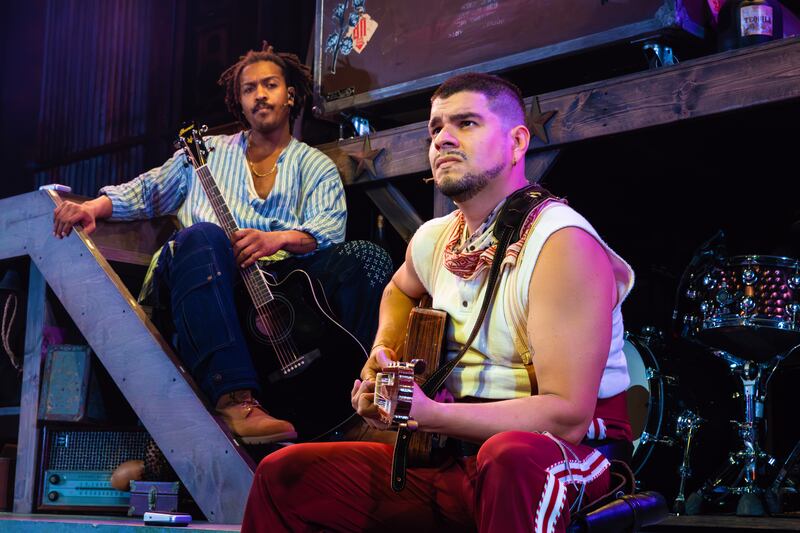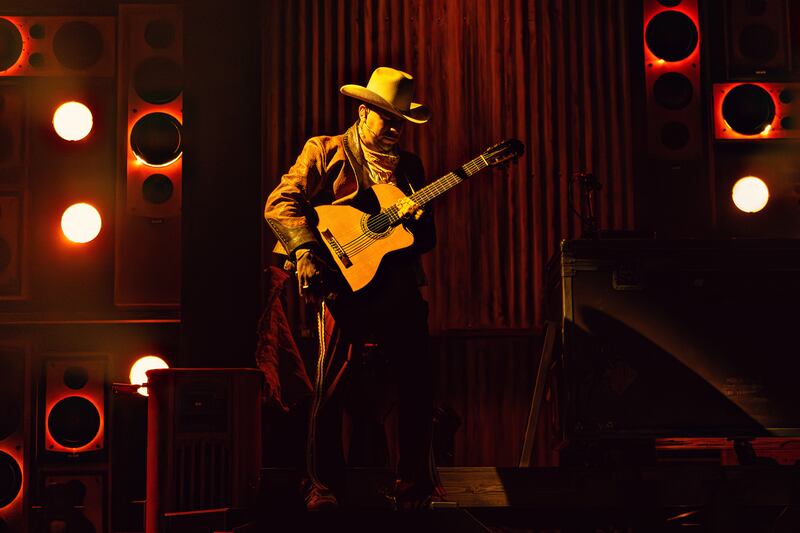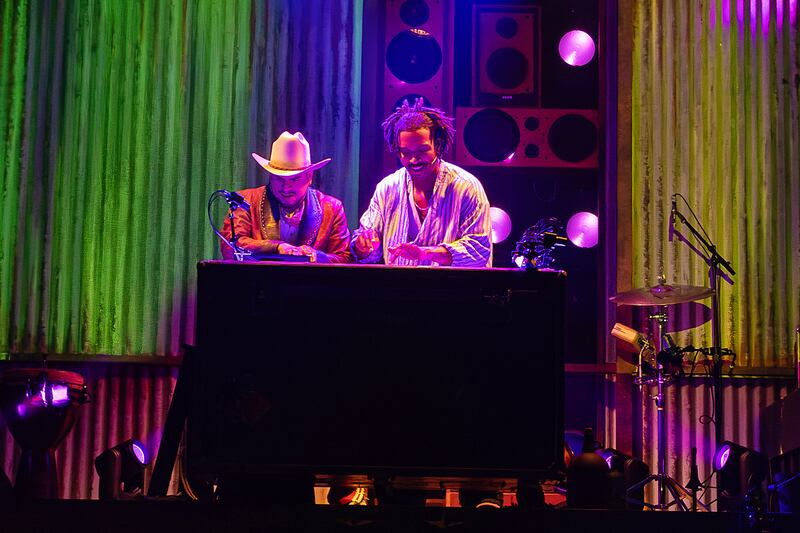The story of the Underground Railroad that ran north may be well-known—the network of safe houses and transport routes slaves took to freedom in the late 18th and 19th centuries.
The musical Mexodus (Audible’s Minetta Lane Theatre, booking to Oct. 18) tells the far less-well known story of the Underground Railroad that ran in the opposite direction, running south to Mexico, and the number of slaves who crossed the perilous Rio Grande.
Created and performed by Brian Quijada and Nygel D. Robinson, and directed by David Mendizábal, Mexodus is an inventive, technically impressive spectacle, both loudly propulsive and low-key meditative.

Mexodus focuses on the friendship between Henry, an escaped slave from Texas, and Carlos, a poor and inexperienced Mexican tenant farmer, who finds Henry after the latter has escaped his murderous owner. (This after Henry has had the moves made on him by said owner’s wife, who then lies that he has sexually assaulted her when said owner walks in on them both.)
The show is a mixture of music (jazz, soul, hip-hop, gospel) and glancing interactions, sketching the men’s relationship with each other, mixed with contemporary and autobiographical material that underlines the show’s bigger themes around racism, exploitation, immigration, and the assertion of identity and strength against whatever systems of repression and exploitation white supremacy may dream up in both present and past. (Comparisons with Hamilton have already been made.)
As a theatrical event, Mexodus is a mixed experience—at moments it seems electrifyingly in focus, at others it feels blurred as the story takes breaks on itself or one of the men disappears off stage. More could be made of the bigger historical story of the Underground Railroad’s southern path, rather than a hasty, tantalizing historical addendum at the end.

However, both performers’ energy and commitment are consistent and engaging. Quijada and Robinson play an impressive number of instruments during the show, then use electronic looping techniques in real-time to keep beats going as they sing or speak elsewhere. The dazzling sound design is by Mikhail Fiksel, responsible for similar, how-did-they-do-that genius of Dana H. for which he won a Tony award. (Mexodus itself will be released as an Audible Original on June 18, 2026.)
“Todos estamos juntas en esto, we’re all in this together,” Carlos says at one point, as Henry tries to ape and learn his Spanish (the patches of humor in the show are nicely underplayed throughout). Indeed, “Henry 2 Henrique,” the musical’s best song—and the one our audience responded to most rousingly to—is one both men sing as Henry prepares, under Carlos’ tutelage, to become as “Mexican” as possible to evade detection and pass in his new life.

First, Henry must escape the murderous clutches of the slave owner’s posse who come to find him, but the heart of the story is the men’s meditation on what their different identities mean, and how oppression and its corrosive effects on the self can be transformed to physical and psychological liberation.
The men’s friendship and trust turns out to be the necessary antidote. What they have in common is being the other; they may be different “others”—but that shared experience of struggle is a powerful bond. The biggest audience cheer of the night comes when Henry finally runs out the door, perils vanquished, to freedom.
The post ‘Mexodus’: Could This Show Be the Next ‘Hamilton’? appeared first on The Daily Beast.




